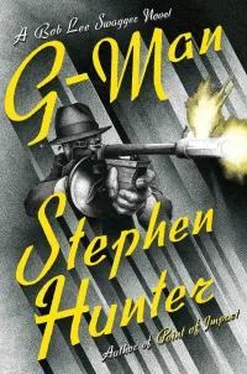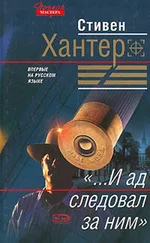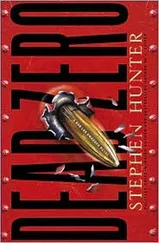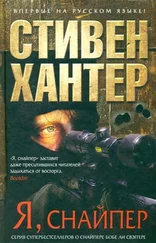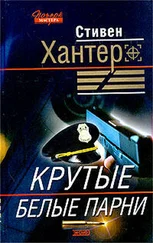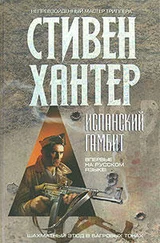Стивен Хантер - G-Man
Здесь есть возможность читать онлайн «Стивен Хантер - G-Man» весь текст электронной книги совершенно бесплатно (целиком полную версию без сокращений). В некоторых случаях можно слушать аудио, скачать через торрент в формате fb2 и присутствует краткое содержание. Жанр: Старинная литература, на английском языке. Описание произведения, (предисловие) а так же отзывы посетителей доступны на портале библиотеки ЛибКат.
- Название:G-Man
- Автор:
- Жанр:
- Год:неизвестен
- ISBN:нет данных
- Рейтинг книги:3 / 5. Голосов: 1
-
Избранное:Добавить в избранное
- Отзывы:
-
Ваша оценка:
- 60
- 1
- 2
- 3
- 4
- 5
G-Man: краткое содержание, описание и аннотация
Предлагаем к чтению аннотацию, описание, краткое содержание или предисловие (зависит от того, что написал сам автор книги «G-Man»). Если вы не нашли необходимую информацию о книге — напишите в комментариях, мы постараемся отыскать её.
G-Man — читать онлайн бесплатно полную книгу (весь текст) целиком
Ниже представлен текст книги, разбитый по страницам. Система сохранения места последней прочитанной страницы, позволяет с удобством читать онлайн бесплатно книгу «G-Man», без необходимости каждый раз заново искать на чём Вы остановились. Поставьте закладку, и сможете в любой момент перейти на страницу, на которой закончили чтение.
Интервал:
Закладка:
Bob looked at the yellowed word and saw that it was so, the E ’s especially, since there were so many of them, giving the game away. These E ’s were at least a magnitude fainter, sometimes not being struck hard enough for the entire letter to print.
“And these were inserted in—”
“Yes, yes,” said Nick, “we’re not talking about extra pages added at the start or finish but contiguous pages — that is, in the body of the work, that read naturally from the page before to the page after. What I’m saying is, someone retyped those pages alone, threw out the originals, and slid the new ones in. What do the new pages have in common? Good question. Too bad you didn’t ask it.”
“What do the new pages have in common?” asked Bob.
“They’re all pages where an agent named Stephen T. Wharlis is cited.”
Bob looked at the document again, this time noting that this agent’s name was highlighted in red.
“All right,” said Bob, “never heard of him, but that doesn’t mean anything.”
“Nobody has ever heard of him. That does mean something. He’s in no memoirs, he’s not listed by the Bureau, or by the retired agents’ association, or in the index of any of the histories of the 1934 campaign against the gangsters.”
“He’s a fraud?”
“Not just a fraud, a very specific fraud, a designer fraud. The name Stephen T. Wharlis has seven letters, a one-point-five-space middle initial, and seven more letters to the surname. The Christian and surnames have the same typeface space value as Charles F. Swagger, meaning that if the documents were retyped, the spacing would remain the same and not be thrown off. You could just retype the pages with Wharlis’s name and not have to retype the whole file.”
Bob let it sink in. Someone, not Elaine Donovan, had gone to a great deal of trouble to replace the pages with Charles’s name in them with pages where a fictitious agent was named. That is, if Charles’s name were in fact on the original pages.
“Why on earth would someone do that?”
“It means also the pay records were removed, the evaluation reports, all paper traces of Charles’s term with the Division. Or I should say it could mean that, as it’s not ipso facto evidentiary. But it could also hardly mean anything else. The chances of someone coming up with a name exactly the numeric space value by Underwood Office Typemaster Model 11-7B are highly unlikely.”
“I get the picture. He got very powerful people mad at him.”
“Madder than hell,” said Nick. “And he ended up in the memory hole.”
CHAPTER 12
SOUTH BEND, INDIANA
June 30, 1934
Jack looked nervous. He lounged near the Merchants National’s prosaic entrance — it was no Deco/Egyptian temple to money but instead a mid-block storefront on Michigan Street under a jutting clock, between a jewelry store and a pawnshop. He smoked a cigar, his lips drawn, his face pale. He wore no overcoat because he carried no long gun.
But he gave them the nod, signifying that on schedule a postal inspector had arrived with all the loot from the Post Office. Though, indicating by finger, only one, not two.
“Okay,” said Johnny. “Money come in.”
“That boy’s going to shit up his pants like a drunk hobo locked in a boxcar,” said Homer, trying as always for the chuckle. None of the others in the boxy Hudson said a thing as Homer cruised along the street. They were nervous too, as no matter how professional you got, how much experience came into play, when the guns came out, when force was applied, when lead flew, it was a dangerous time.
Instead, harsh breathing, a kind of obsessive fondling and checking of the guns, a kind of willed relaxation meant to calm the heebie-jeebies that flew through the car like insects, threatening to land anywhere at any time. Only Johnny was completely relaxed.
“He’s fine, he’s fine,” he said after a bit. Then he added, “No parking yet. Go around the block again, will you, Homer?”
“Cock-a-doodle-I-will-do,” said Homer, driving, his eyes darting this way and that for signs of cop.
Meanwhile, Les, Thompson drum-charged with forty-nine .45s under his three-sizes-too-big suit coat (it hung down past his fingers, making him look childish, and the hat, too large, pulled too low, didn’t help: Mickey McGuire with machine gun), was thinking about killing Homer as a way of keeping his mind off the thirty pounds of steel bulletproof vest he wore under his shirt and the little ants of sweat tracking down his body.
“We’re in the money,” sang Homer.
“Clamp it, vaudeville,” said Charlie Floyd. “Save them jokes for the showers when the niggers get you.”
It was like a family. Nobody liked anybody except all liked Johnny. He was the big brother.
Silently, Homer navigated the big Hudson, turning off Michigan to Wayne, then turning off Wayne to Main, Homer driving carefully because things could go wrong off a little bumper scrape or a cop seeing a stop sign or a yellow-light run. This block of small Indiana city on a sunny Saturday morning rotated past the right-side windows as Homer circled, yielding visions of American life that had no meaning to the car’s occupants for they had conspicuously chosen to live outside its neatness, its primness, its orderliness, its optimism, its regularity and consensus. What drove them collectively was not merely greed to have what wasn’t theirs but the need to be the outlaw, that figure who played by no rules, who was big by his own definition, who dared to flamboyantly grab, and though knowing doom was sure, would revel in reputation and respect until the last cop bullet found its mark and dumped each into the gutter to bleed out, waiting for an ambulance that nobody remembered to call.
The car turned right again on Jefferson, then eased around the last corner and back onto Michigan Street, and since nobody had bothered to pull out, Homer came to a halt in the traffic lane and double-parked. And why not? It was going to be a quick in-out against rubes and hicks.
“Gee,” said Homer, “we might get a parking ticket.”
He left the car running, set the parking brake, and pressed his .351 Winchester tight against the denim leg of his sloppy overalls, as he had dressed country so they didn’t look like a team.
A last check with Jack, who fed them another nod, this to indicate no cops inside, none on the street, nobody suspicious hanging around.
It was time to go to work.
“We’re in the money,” said Homer, tracing the idiot rhythm of the picture-show song, “we’re in the money.”
As designated barker, it was Charlie’s call. He hit the double doors hard, stepped up into a not-as-fancy-as-some-banks-he’d-seen interior, and let Johnny slide to the gate that led to the tellers’ cages from behind, and then pulled his big, brutish Thompson out, waved it dramatically like in a picture show, and shouted, “Everybody on the floor!”
Nobody went to the floor. Nobody even noticed. The place was crowded with customers, all, it seemed, with urgent financial issues and all, therefore, bent over their little account books with rapt concentration, or standing next to the ornate high tables and diddling with checkbook mechanics, because of course none trusted the banks, these being Midwesterners, and so they would calculate their interest to the penny, in fountain pen.
Charlie had a moment not of panic but utter frustration. What was wrong with these idiots? He shot a look to Johnny, whose hand had slipped inside his jacket to rip out his .45. As bagman, he couldn’t have a long gun.
Johnny shot him a what-the-hell look and a nod, and Charlie raised the muzzle of the unnoticed Thompson to the ceiling, thumbing the safety lever down, making it hot, continued to raise it, and when it was adequately skyward, he pressed the trigger.
Читать дальшеИнтервал:
Закладка:
Похожие книги на «G-Man»
Представляем Вашему вниманию похожие книги на «G-Man» списком для выбора. Мы отобрали схожую по названию и смыслу литературу в надежде предоставить читателям больше вариантов отыскать новые, интересные, ещё непрочитанные произведения.
Обсуждение, отзывы о книге «G-Man» и просто собственные мнения читателей. Оставьте ваши комментарии, напишите, что Вы думаете о произведении, его смысле или главных героях. Укажите что конкретно понравилось, а что нет, и почему Вы так считаете.
